This month we are acknowledging the two-year anniversary of the pandemic. It has created enormous, sometimes catastrophic,
challenges for most people. Nonprofits have been especially hit hard with the restrictions that impacted their fund-raising efforts and hampered their delivery of services. Yet, because of their intrepid resilience, many organizations figured out how to rise above the difficulties and even discover silver linings. In this article, we will hear from several local nonprofits about how their struggles led to new opportunities.
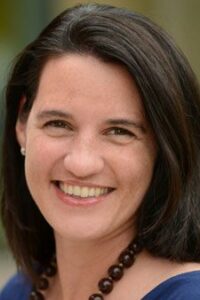
Robin Gose, PhD, CEO MOXI
I asked several nonprofits to describe their response to these four questions:
What was the biggest challenge you faced over the past two years because of the pandemic?
Heidi Holly, Executive Director Friendship Center
- Robin Gose, President & CEO, MOXI: Our primary mode of serving our community is inside our museum, with exhibits and programs. Closing our doors, with no certainty of when we could reopen, was really challenging. Rather than feeling it like a punch to the gut, though, we used it as an opportunity to think differently about how we might deliver interactive STEAM learning experiences to children, families, and schools.
- Heidi Holly, Executive Director, Friendship Center: Ourchallenges ranged from how to keep our staff and clients healthy, happy, and safe, to interpreting CDC, Public Health Department’s, and in our case, community care licensing COVID mandates and protocols. One of the biggest challenges that we faced was how to deter senior isolation. The elderly have been much more vulnerable to the physical effects of COVID therefore forcing them to isolate at home for an extended period of time. Senior isolation has been a huge problem and has resulted in an increase in depression and cognitive decline.
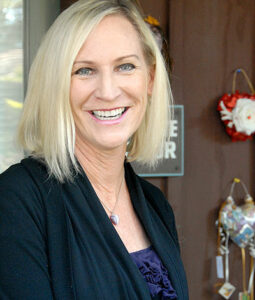
Heidi Holly, Executive Director Friendship Center
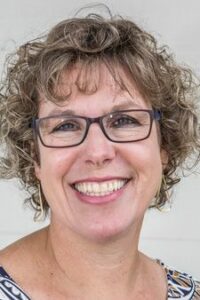
Lori Goodman, E.D. IVYP
Lori Goodman, E.D. IVYP
- Lori Goodman, Executive Director, IVYP: We desperately need more teachers for our preschool. We’ve lost some who had babies and are unwilling to come back to work, even with childcare provided, because they don’t want to expose their young child to the virus.
- Alana Walczak, President & CEO, Calm: It has been very challenging to navigate the ever-changing realities in a pandemic world – for our staff, our clients, our volunteers, and the organization. We are all working to feel whole after a sustained period of uncertainty and isolation. Personally, I have been reminding myself that holistic health matters – that mental health is just as important as physical wellbeing.
How did the pandemic impact your finances?
- Robin Gose, President & CEO, MOXI: Our earned revenue streams took a major hit because we were closed – admission fees, memberships, field trips, facility rentals – that all makes up more than 60 percent of our annual budget, with fundraising making up the difference. During the pandemic we had to rely on the generosity of our community, and I am humbled and grateful that through community support we were ready to reopen our doors once the mandates were lifted. Now that we are open, we have seen attendance and programs rebound, though still not quite back to our typical earned revenue goals.
- Heidi Holly, Executive Director, Friendship Center: Since we were closed for on-site services the first year, our revenue from membership fees was significantly reduced. The first year we took a huge hit, losing 88 percent of membership revenue.
- Lori Goodman, Executive Director, IVYP: The most financially challenging part of the pandemic has been uncertainty. The amount of work we must do has grown exponentially. I need to add more staff to meet the needs in our community. However, I am very concerned about sustainability. Unrestricted funds help us plan for the future and manage our finances strategically and carefully. Restricted funds (which is mostly what we’ve received during the pandemic) sometimes force us to make sub-optimal financial decisions.
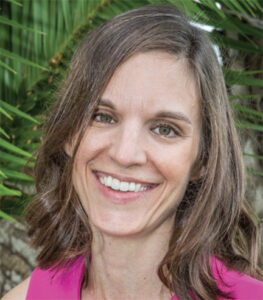
Alana Walczak, CEO CALM
Alana Walczak, CEO CALM - Alana Walczak, President & CEO, CALM: We are so grateful for the tremendous generosity from our community. Our donors stepped up in a huge way during the last two years. With their investment, we have been able to maintain services, retain and develop staff, and operate with a forward-thinking mindset. The current mental health crisis may last for generations, and CALM is committed to changing the trajectory of the health and wellbeing of all community members. As a result, long-term support is crucial to the sustained wellbeing of our shared community.
What strategy was most successful in rising above the challenges your organization faced?
- Robin Gose, President & CEO, MOXI: We focused our efforts around three key goals: supporting schools, staying relevant, and securing funding. This focus gave staff clear purpose, which also helped morale, and kept us on track to continue to deliver on our mission, just differently than we might have thought.
- Heidi Holly, Executive Director, Friendship Center: We adapted our approach by serving our members in a variety of creative ways: we offered online activities through our virtual activities subscription program, we hosted in-person events with structured social distancing, we conducted regular care consults by phone/FaceTime, and delivered personal care supplies and activity tools, and made special house visits as needed. This helped us to spark joy for our isolated members by providing stimulating socialization.
- Lori Goodman, Executive Director, IVYP: We focused on caring for our staff so that they can care for our community. I do my best to ensure that staff feel valued and that they know that they are part of a big vision to care for our families and our community. They need to feel that their work makes a real difference – because each one is working so hard every day. Caring for staff has included concrete things like improving health coverage and providing hazard pay, and intangibles, like sharing appreciation from clients and board members.
- Alana Walczak, President & CEO, CALM: As a leader, I am working each day to ensure that our staff feels supported to do the essential, frontline mental health work that Santa Barbara County children and families need at this critical moment. Burnout, fatigue, disengagement, and decreased motivation are all very real symptoms of this difficult time – therefore, individual, and collective wellness become paramount. To build resiliency for our community we need to build resiliency for ourselves.
As you look back, did you find any silver lining in the dark cloud of obstacles you encountered or new opportunities?
- Robin Gose, President & CEO, MOXI: For me, the silver lining was the team. Even when the future of hands-on museums looked bleak, everyone remained committed to our mission and demonstrated creativity, motivation, and innovation in some really incredible ways. It helps that we share a love of informal science learning as well as a love of science puns. Humor helped us a lot along the way.
- Heidi Holly, Executive Director, Friendship Center: The silver lining was being reminded of how resilient and creative our nonprofits are and their strong commitment to honor and serve their mission. Many nonprofits formed partnerships during the pandemic to meet the needs of the most vulnerable in our community. This leads credence to the adage: “That we truly are stronger together!”
- Lori Goodman, Executive Director, IVYP: We found a tremendous, renewed sense of purpose and meaning.
- Alana Walczak, President & CEO, CALM: The pandemic has shown us how much grit we have as an organization. It has deepened our purpose and commitment to the children and families most in need throughout our communities.
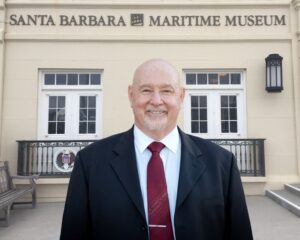
Greg Gorga, E.D. SB Maritime Museum
Greg Gorga, E.D. SB Maritime Museum - Greg Gorga, Executive Director, Santa Barbara Maritime Museum: Here at the Maritime Museum, I learned how resourceful our staff can be. Immediately after the shutdown we started adding interactive activities to our website, like our Science Night activities, Maritime on the Move (in English and Spanish), a Curator’s Log, our first online interactive exhibit (the Brooks Models), and so much more. Thanks to our Board Members and donors we did weather the storm, but it was sad to be shut down for 370 straight days.
What new strategy or action will your organization carry forward because of changes you made to address the trials of the pandemic?
- Robin Gose, President & CEO, MOXI: As a team I think we all thought of ourselves as flexible and nimble – but those qualities were truly put to the test during the pandemic and I think we all have a newfound appreciation for those qualities in ourselves, and in the rest of the staff.
- Heidi Holly, Executive Director, Friendship Center: We will continue utilizing Zoom in our organization even though we had a learning curve at the beginning of the pandemic. Our Board of Directors and staff are now confident that we will be able to maintain our infrastructure and sustainability no matter what crises prevails in our world. Our whole team is recommitted to serving our senior population and their caregivers. We have weathered many storms during the last four years from fires, debris flow, and currently the pandemic. What doesn’t kill you truly makes you stronger!
- Lori Goodman, Executive Director, IVYP: Over the past year, we’ve become more focused on health in our community. I envision a greater focus on partnership with healthcare organizations and continuing to address the social determinants of health.
- Alana Walczak, President & CEO, CALM: During the pandemic, CALM developed our guiding principles for the future. These include a commitment to:
- Clinical Excellence, centered on the strengths of children and families, developing the expertise of our staff, and innovating through continuous improvement
- All-In Approach that advances a robust continuum of care, engages with vision and compassion, and elevates impact
- Leading the Way by creating systems change through the development of trauma-informed organizations and communities
- Meaningful Relationships to strengthen and mobilize partnerships, foster equity and inclusion, and cultivate trust
